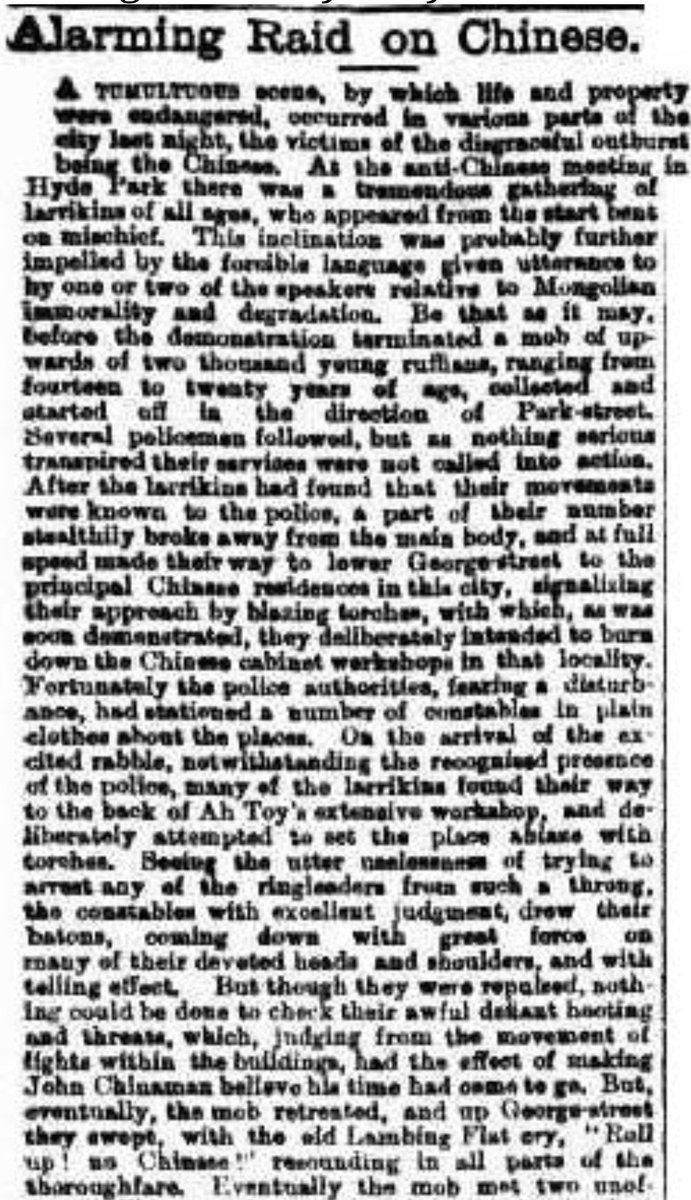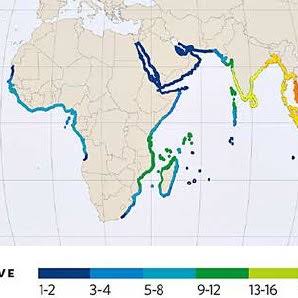
Here's a rare piece of good news: Despite the tragic #SJ182 crash, air safety in Indonesia is rapidly improving.
The accident rate in 2018 and 2019 was *lower* than it was in the U.S. and EU:
bloomberg.com/opinion/articl…
The accident rate in 2018 and 2019 was *lower* than it was in the U.S. and EU:
bloomberg.com/opinion/articl…
Indonesia has a terrible reputation for air safety. Its carriers were banned from Europe from 2007 to 2018 because standards were felt to be so lax.
But why was the ban lifted in 2018? Because standards are now a lot better.
But why was the ban lifted in 2018? Because standards are now a lot better.
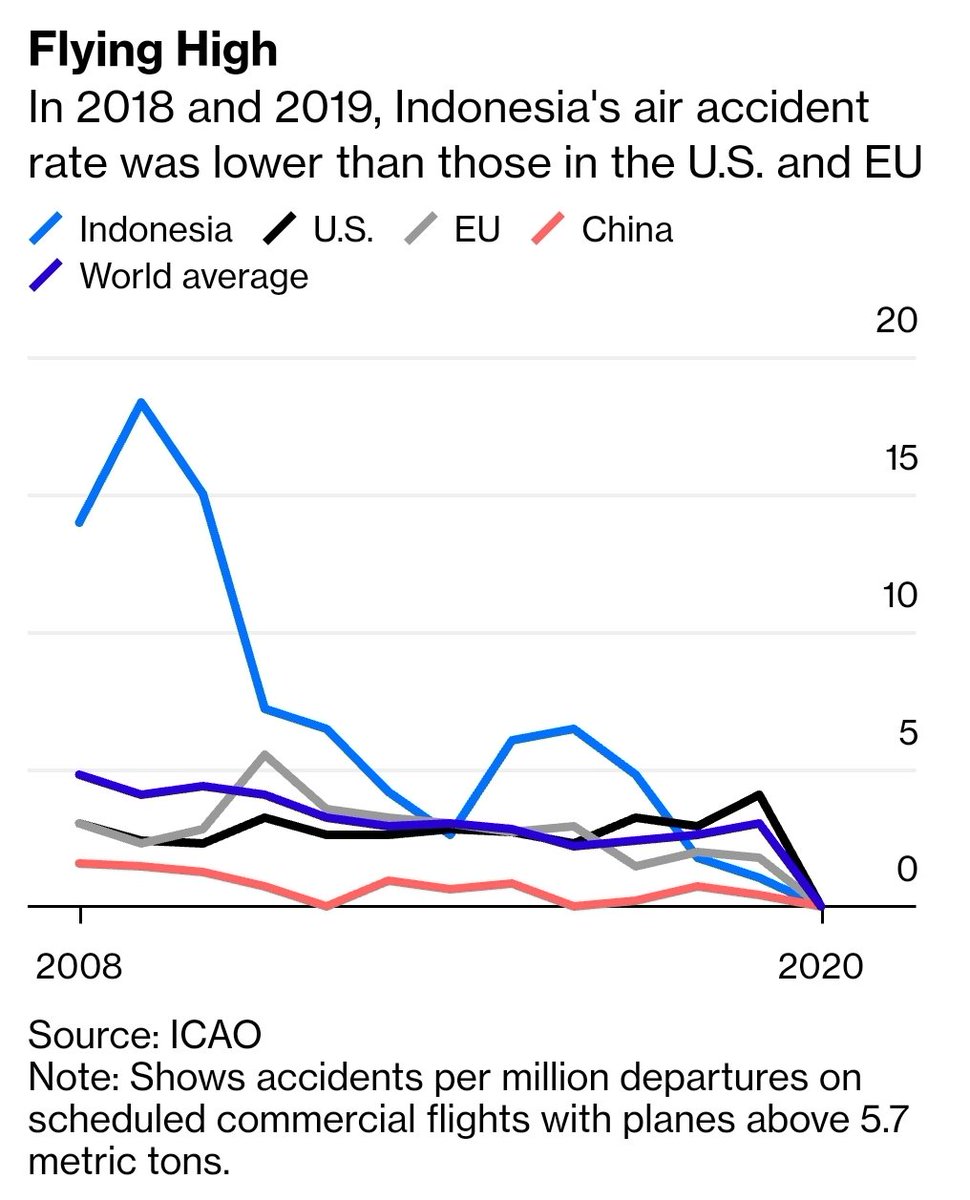
When aviation was deregulated in the late 1990s after the Asian financial crisis and fall of Suharto, a huge number of dodgy small airlines opened, with regulation too lax to handle the vast growth in air traffic.
The result was a series of well-publicized disasters.
The result was a series of well-publicized disasters.
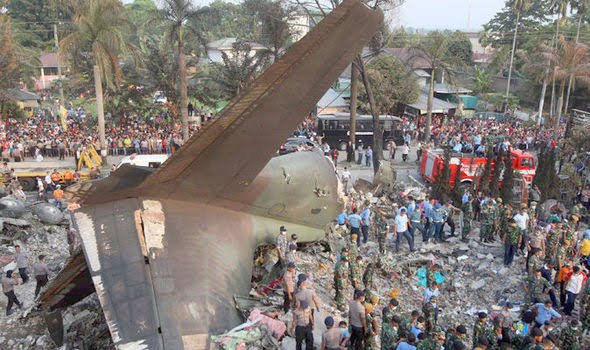
A lot of people saw this in, IMO, an essentialist and racist way: Indonesia has poor air safety because that's just the way things are in Indonesia, rather than because of specific regulatory problems the country was working on fixing.
I remember after the crash of Lion Air flight 610 in 2018, I got lots of emails blaming it on "Indonesian air safety".
IMO if this prejudice wasn't so widespread, people may have studied the 737 MAX's design problems before another 157 people were killed on ET302.
IMO if this prejudice wasn't so widespread, people may have studied the 737 MAX's design problems before another 157 people were killed on ET302.
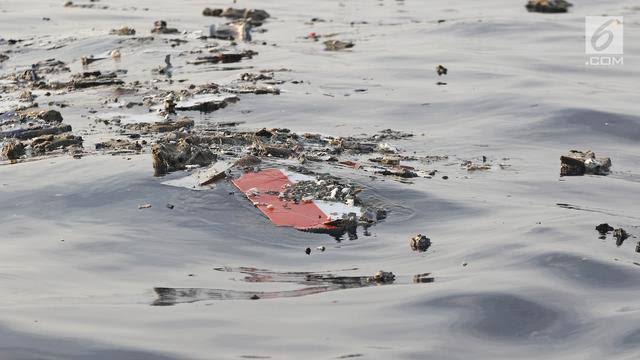
If you look at the metrics that @icao uses to assess the safety set-up of countries' aviation systems, Indonesia was by 2017 better than the world average on all but two measures: 
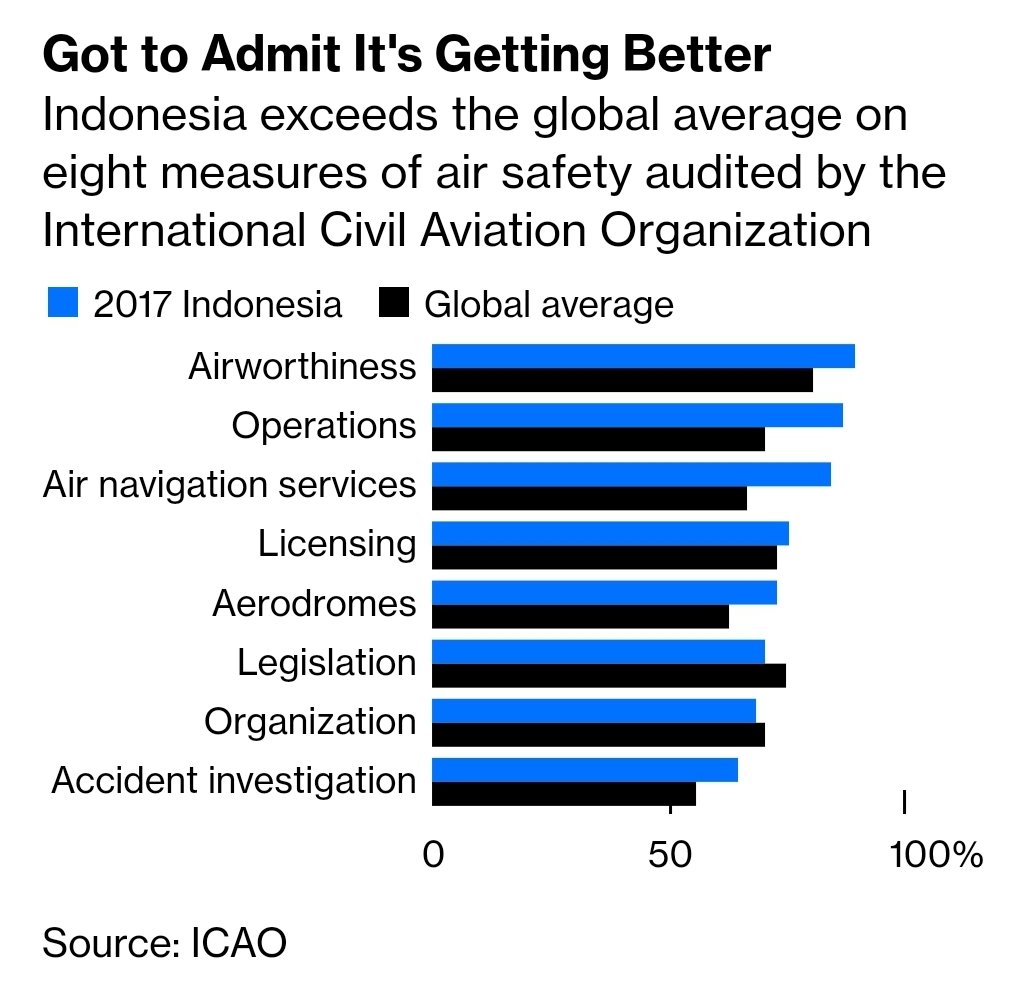
There's one big reason that makes air safety in Indonesia harder than other countries: It's a huge, tropical, mountainous archipelago with very extreme weather.
That means flying is just fundamentally more risky than in many other places because bad weather is one of the biggest risks for flying.
This study last year found weather was a factor in 58% of crashes in Indonesia, compared to 8% in the U.S.:
researchgate.net/publication/34…
This study last year found weather was a factor in 58% of crashes in Indonesia, compared to 8% in the U.S.:
researchgate.net/publication/34…
In addition, when you look at aggregate crash numbers you're often including some very remote places, where small turboprop planes are flying on underdeveloped routes between remote bush airstrips and rolling into the long grass counts as a reportable accident.
For instance, between 2010 and 2016 Papua (pop.: 4.3 million) accounted for as many accidents as Java (pop.: 145 million).
There's one genuine "cultural" issue that may still be causing problems: Poor teamwork and decision-making between aircrew was a factor in 74% of crashes in that study by Agus Pramono et al., even more than weather:
researchgate.net/publication/34…
researchgate.net/publication/34…
A lack of respect for hierarchy and a habit of plain speaking can be important safety assets in a cockpit, where the co-pilot will often need to correct a more senior pilot who's making a mistake. Indonesia scores high on measures of respect for hierarchy: clearlycultural.com/geert-hofstede…
But I think this issue is easily overplayed, and can be solved with adequate training and experience.
Singapore and China both score equally highly on respect-for-hierarchy scores but have some of the world's best air safety records.
Singapore and China both score equally highly on respect-for-hierarchy scores but have some of the world's best air safety records.
So, while this latest crash is clearly a tragedy, don't ignore the genuine progress Indonesia has made. Fixing air safety isn't easy, but this country appear to be well on the way to cracking it. (ends)
• • •
Missing some Tweet in this thread? You can try to
force a refresh

